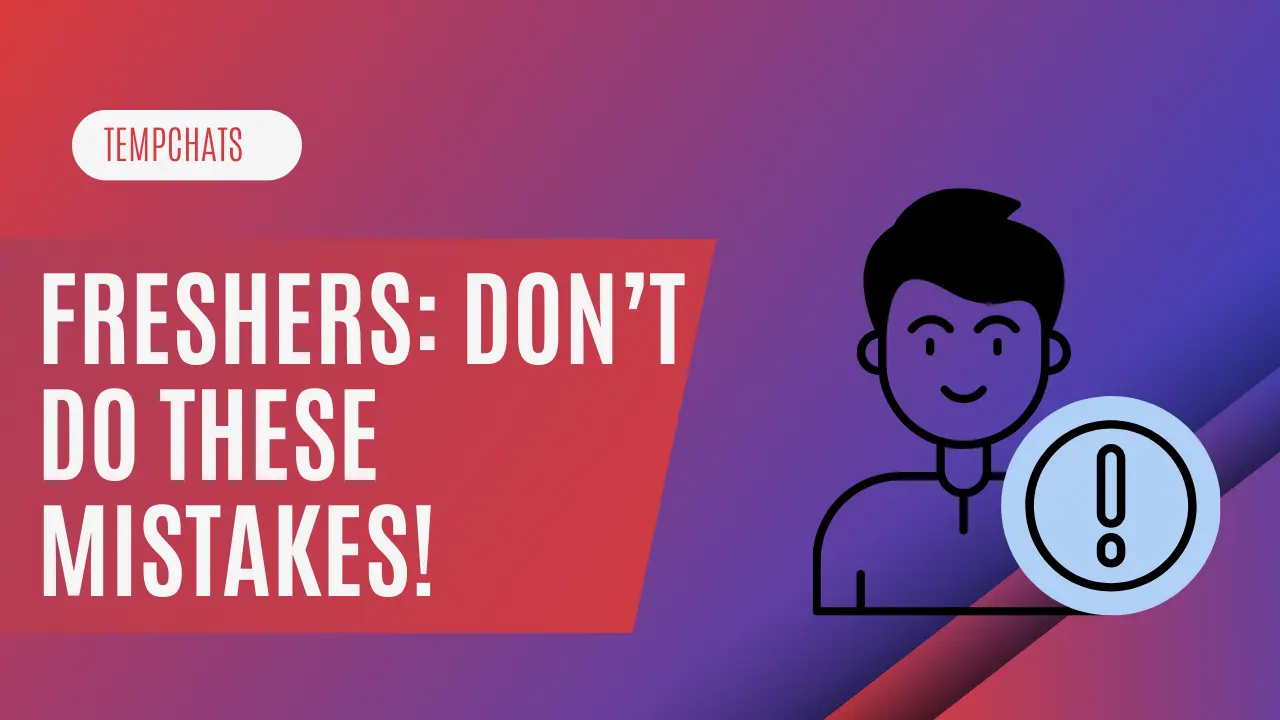Walking into your very first workplace is a mix of excitement and nervous energy. You finally have that long-awaited offer letter in hand, but the reality of the professional world often feels very different from what we imagine in college. Many fresh graduates stumble in similar ways — not because they lack talent, but because they don’t yet know how workplaces really function.
Let’s talk about some of these early missteps and how you can sidestep them.
The Paycheck Trap
One of the most common blunders is judging a job purely by its salary. It’s tempting — after all, money feels like the biggest measure of success. But a first job should be seen as a training ground. The experience, the mentor you learn from, and the skills you pick up will often outweigh the starting package. Think of it as an investment in your future self.
Staying Silent Out of Fear
Many freshers worry that asking too many questions will make them look inexperienced. Ironically, staying quiet usually leads to bigger mistakes. Workplaces expect you to learn, and curiosity is a sign of growth. A simple “Could you explain this process?” can save you hours of confusion later.
Overlooking Workplace Culture
Technical skills get you hired, but cultural fit keeps you growing. Graduates sometimes focus so much on tasks that they forget how important it is to adapt to team dynamics. Notice how colleagues communicate, how meetings are handled, or even how people approach deadlines. Blending into the culture while adding your own positive touch is a subtle but powerful skill.
Time Isn’t Just a Clock-in and Clock-out
College deadlines often allow flexibility, but jobs rarely do. Being late, missing deadlines, or underestimating how long a task takes can quickly damage your reputation. Employers notice consistency more than brilliance. Showing up on time and delivering as promised builds credibility faster than any degree.
Confidence at the Right Level
Graduates tend to fall into two traps: overconfidence (“I know it all because I just graduated”) or underconfidence (“I don’t know anything, maybe I’m not ready”). Both are dangerous. The sweet spot is acknowledging what you don’t know while being willing to learn quickly. Employers admire humility paired with initiative.
Feedback: Friend, Not Enemy
Criticism at work can sting, especially when you’re new. But feedback is rarely personal; it’s professional guidance in disguise. Instead of defending yourself, try asking: “What can I do differently next time?” That mindset alone can set you apart from most peers.
Limiting Yourself to the Job Description
The biggest opportunities often hide outside the official role. If you only stick to what’s written in your appointment letter, you’ll grow at the speed of the job. But if you volunteer for projects, show initiative, and bring fresh ideas, you’ll grow at the speed of your ambition.
The Temptation to Quit Early
The honeymoon phase of a first job doesn’t last long. Some freshers jump ship within months when things get tough. Unless the workplace is toxic, it’s wiser to stay at least a year. That time teaches resilience, problem-solving, and adaptability — qualities no textbook can provide.
A Gentle Reminder
Your first job will never be perfect — it’s not meant to be. It’s your practice field, the place where you learn unspoken rules of the professional game. Mistakes will happen, but awareness of them means you’ll recover faster and grow stronger.
So, walk in with curiosity, adapt to the culture, and remember: you’re not just working for a paycheck — you’re building the foundation for everything that comes next.
